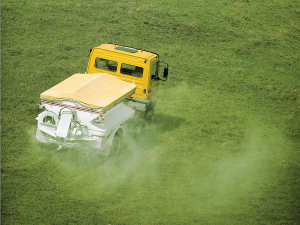Geopolitical shifts drive fertiliser market volatility – Ravensdown
According to Ravensdown's most recent Market Outlook report, a combination of geopolitical movements and volatile market responses are impacting the global fertiliser landscape.
 A company has been sentenced after a cloud of lime dust across a motorway caused a multi-vehicle crash which killed a driver.
A company has been sentenced after a cloud of lime dust across a motorway caused a multi-vehicle crash which killed a driver.
A Bay of Plenty company has been sentenced after a dense cloud of lime dust across a motorway caused a multi-vehicle crash which killed a driver.
Wealleans Bay of Plenty Limited was spreading the lime at a dairy farm next to the Tauranga Eastern Link Road on 5 February 2020, when the cloud drifted across the motorway on the wind – reducing visibility to almost nothing.
Susan Walmsley’s vehicle was engulfed and collided with a car in front, and was then struck from behind. The 64-year-old never regained consciousness and died days later in hospital.
“Mrs Walmsley was a treasured wife and mother, as well as a beloved teacher, and our thoughts are with all those who continue to mourn her loss. This was a preventable tragedy, and more should have been done to account for the risk to road users,” says Worksafe’s area investigation manager, Paul West.
In June this year, Judge Paul Mabey QC found Wealleans guilty of health and safety failings, and the company was sentenced yesterday at Tauranga District Court.
In his decision, Judge Mabey noted the fertiliser truck driver “had no control over what the wind was doing to the product, but that is the point”.
The judgement went on to say the driver “was spreading in circumstances where the wind caused third party risk, was unaware of what was occurring before she stopped and when, finally, a decision to stop was made it was too late”.
A WorkSafe investigation found Wealleans failed to undertake an appropriate risk assessment and did not implement a safe system of work for spreading fertiliser on the farm, exposing others to serious injury and death.
“It’s only by luck that there were no further fatalities on the motorway that day. Although the circumstances are uniquely sad, this incident could have happened anywhere in the country so the agriculture sector more widely should take notice,” says West.
He says industry guidance is clear that there is a risk of wind drift.
“Agricultural lime is a dusty product that can cause a reduction in visibility, depending on how it is handled or local weather conditions. This risk should be assessed before use, including the impact on operators, farmers, nearby moving vehicles, and the public.”
Agricultural and veterinary product supplier Shoof International has appointed Michaela Dumper as its new chief executive.
Federated Farmers is celebrating following the Government's announcement that young farmers will be able to use their KiwiSaver funds to buy their first home or farm.
The Meat Industry Association of New Zealand (MIA) today announced that Chief Executive Officer Sirma Karapeeva has resigned from the role.
The winners of the 2026 Hawke’s Bay/Wairarapa Dairy Industry Awards were announced at the annual awards dinner held at Copthorne Solway Park in Masterton on Thursday evening.
Environment Southland is welcoming this week’s decision by the Environmental Protection Authority (EPA) to approve the release of Blaptea elguetai, a leaf‑feeding beetle that will help control the highly invasive Chilean flame creeper.
This March, the potato industry is proudly celebrating International Women’s Day on 8 March alongside the International Year of the Woman Farmer, recognising the vital role women play across every part of the sector — from paddocks and packhouses to research, leadership, and innovation.

OPINION: A mate of yours truly reckons rural Manawatu families are the latest to suffer under what he calls the…
OPINION: If old Winston Peters thinks building trade relations with new nations, such as India, isn't a necessary investment in…